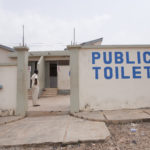A total of 2,102 suspected cases of cholera and 63 deaths from the disease have been recorded across 33 states since the beginning of this year, the Nigeria Centre for Disease Control and Prevention (NCDC) has said.
The Director General of the agency, Dr Jide Idris, made the disclosure Tuesday in Abuja while giving an update on the cholera outbreak.
He said seven of the top 10 states that contributed about 90% of the cases are Southern states.
The top 10 contributing states are Lagos, Bayelsa, Abia, Zamfara, Bauchi, Katsina, Cross River, Ebonyi, Rivers and Delta.
- 600 Youths to benefit from NASFAT’s training on wealth creation
- Ododo hails Tinubu for appointing Sheidu Executive Secretary NPTF
He said, “Cholera, a highly contagious food and waterborne disease, has in the recent past reared its devastating head in several states across our country. It is caused by the ingestion of the organism Vibrio Cholerae in contaminated water and food.”
The NCDC director general said the disease had spread to 122 LGAs as of 30th June with a case fatality rate of 3.0% since the beginning of the year.
He said the National Cholera Multisectoral Emergency Operation Centre (EOC) activated parades an array of subject matter experts and provides strategic coordination, meets daily and provide periodic situation report for stakeholders.
He further said this also ensures effective mobilization, harmonization and distribution of resources to support the affected states.
“This is done through the relevant thematic areas of response that cover coordination, surveillance, case management, infection prevention and control, risk communication and community engagement, water sanitation and hygiene, vaccination, logistics, research with a costed Incidence Action Plan for the response developed and being implemented,” he added.
Dr Idris said the challenges contributing to the outbreak are open defecation, inadequate safe water and poor sanitation, weak regulation on construction of soak away, and bore holes (some sunk close to water source and bore holes sunk in wrong location) among others.
He said others are capacity gap among health care workers at the states, inadequate implementation and enforcement of public nuisance law and other relevant public health laws, low knowledge and practice of basic hygiene such as hand washing and effect of climate change and flood.
He said that only 123 (16%) of 774 LGAs in Nigeria are open defecation free with Jigawa as the only open defecation free state in the country .
He added that more than 48 million Nigerians practise open defecation.

 Join Daily Trust WhatsApp Community For Quick Access To News and Happenings Around You.
Join Daily Trust WhatsApp Community For Quick Access To News and Happenings Around You.

